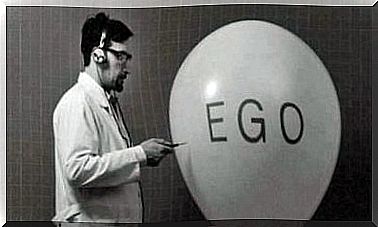The Psychology Of Electronic Sports

The psychology of electronic sports has become more relevant today. Electronic sports are becoming more popular every year and it is now quite common to hear about it in the media.
International electronic sports tournaments have millions of followers. In addition, they serve as an excellent form of publicity for video game producers and promoters.
In this article, we will focus on two main aspects of this phenomenon. The first relates to the skills and behavior that people who practice electronic sports must possess. The second relates to why these video games are so appealing to new generations.
We look at the primary features of this phenomenon from a psychological point of view. Technology is advancing at lightning speed and video games can be a problem for a variety of reasons. However, they can also be a valuable tool in an intervention.
Electronic Sports: The Video Game Boom
Globalization has definitely had an impact on the electronic sports phenomenon. The audience of video games has increased enormously in recent years.
Many people who grew up playing video games and continued to do so into adulthood are now parents. As a result, their children also often play video games, and people of every age in between. Today, it’s hard to imagine that everything started in the 1970s with people getting together to play Pac-Man or Space Invaders.

The Internet Revolution
The ability to connect to the Internet and play online games with other users was a revolution in the 1990s. Major producers like Nintendo and Sony compete with each other to this day to sell the most.
Around the same time, industry leaders realized the importance of understanding the demands of their users. Then the foundation was laid for the psychology of electronic sports.
Professionalization of electronic sports
The boom has had such an impact that there are even a lot of people who make their money playing video games. The tournaments themselves have become internationally important. Massive competitions like the ones started in Japan and South Korea have spread to the rest of the world.
How much the market has grown and the availability of sponsors makes it possible for many people to get by with e-sports on a monthly basis. There are different game categories:
- Real Time Strategy (RTS). These are games based on real sports. An example is FIFA football tournaments.
- First person shooter (FPS). This category mainly includes war simulation games and armed mission games. An example is the popular game Counter-Strike.
- Multiplayer Online Battle Arena (MOBA). This is the most popular category in which people fight in a fantasy world. League of Legends is one of the most popular MOBA games.
Why are esports so popular?
Watching videos on YouTube of other people playing video games is a very popular activity among younger generations. This phenomenon confuses many parents and older adults.
What’s so appealing about watching someone else play a game without being able to join in? Psychologists came up with the following explanations:
- aesthetic. The art of playing well. Professional players show their playing skills attractively.
- drama. Watching other people participate in a competitive activity is exciting. In addition, having two or more players involved increases the excitement.
- Way to escape. Like any other form of entertainment, it is a means of distraction for the viewers.
- A feeling of belonging. Die-hard football fans identify as fans and those who follow esports identify themselves as “gamers.” In other words, they also identify with a particular player or team.
The psychology of electronic sports
Today, video games are used for various reasons. From ADD/ADHD pilot training and intervention to education, video games can be a great educational tool.
There are several studies that support the idea that video games can help improve one’s cognitive skills. However, their increasing complexity requires the very skills they help develop.
The main psychological skills involved in e-sports
From a psychological point of view, there are several “requirements” to be a good player. When we talk about ‘cognitive skills’ we mean the executive functions of the brain that are in high demand for playing video games. Let’s take a look at some of the most commonly used cognitive skills in esports.
- Concentration Power. Playing these types of video games requires a lot of concentration. Players must pay attention to every detail on the screen and some games can go on for hours.
- Schedule. Since strategy is a critical part of esports, planning is a fundamental skill. These games require a high planning ability to process the events of the game. They also require you to come up with quick, intelligent answers.
- working memory. This ability consists of using all your cognitive resources for one task. Making connections between what you see on the screen at that moment and things that have already happened is critical.
- Inhibition. Being able to control your impulses and focus your attention on one goal is another important skill in esports. A crucial aspect of the game is ignoring potential distractions.

What do esports fans want?
The demands of electronic sports fans and constantly evolving technology mean that this industry is constantly changing. Psychologists have noticed these changes. Today they seem to be following a trend. Psychologists realized that players and spectators value certain qualities, such as:
- Immersion. The more realistic the game, the better. Players want to feel like they’re ‘in’ the game.
- Competitiveness. The producers usually offer better scenarios and game modes.
- The story. Gamers want to play something with a complex story behind it. That feeds the myth and the sense of immersion.
- Realism and Fantasy. The graphics are extremely important. That’s because they offer a measure of reality. However, a dose of realism can also complement the fantastic scenarios and stories as it arouses the curiosity of the players.
An industry plagued by problems
Electronic sports organizations struggle with problems that you also encounter with other sports organizations. Today, these problems even threaten to ruin the industry.
One of the problems is the proliferation of drugs and drugs that help increase players’ attention skills and improve their performance. Problematic gender stereotypes are also a problem. In addition, you also have the potentially addictive quality of video games for children.
Finally, this makes psychology more and more interested in e-sports. However, this is only beneficial. Looking at this phenomenon from a psychological point of view helps to understand the qualities that make it a popular activity.
Some researchers are debating how “sporty” esports actually are. Nevertheless, the cognitive skills that a professional gamer needs are indisputable. A psychological analysis of esports can also help identify complications and problems within the games, as well as potential therapeutic applications.









